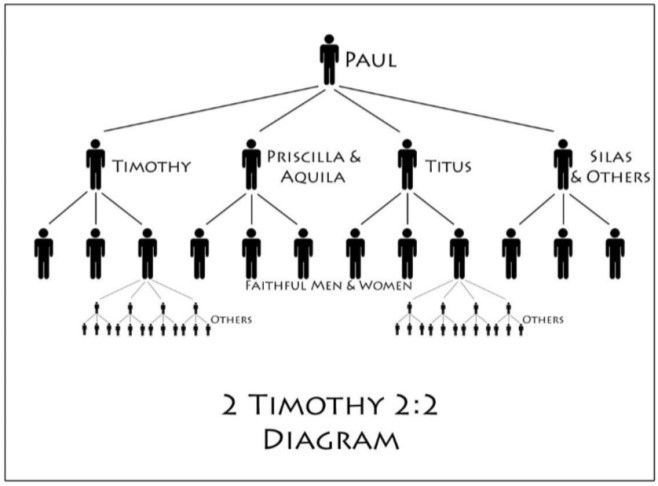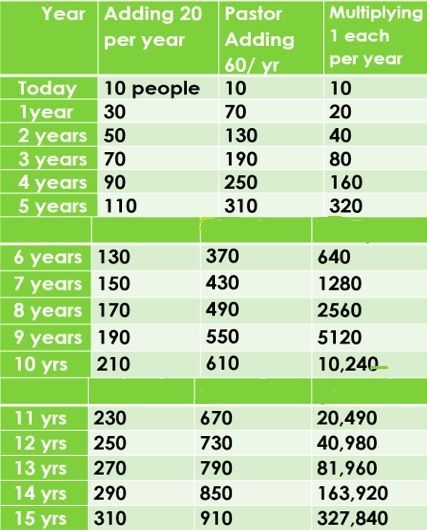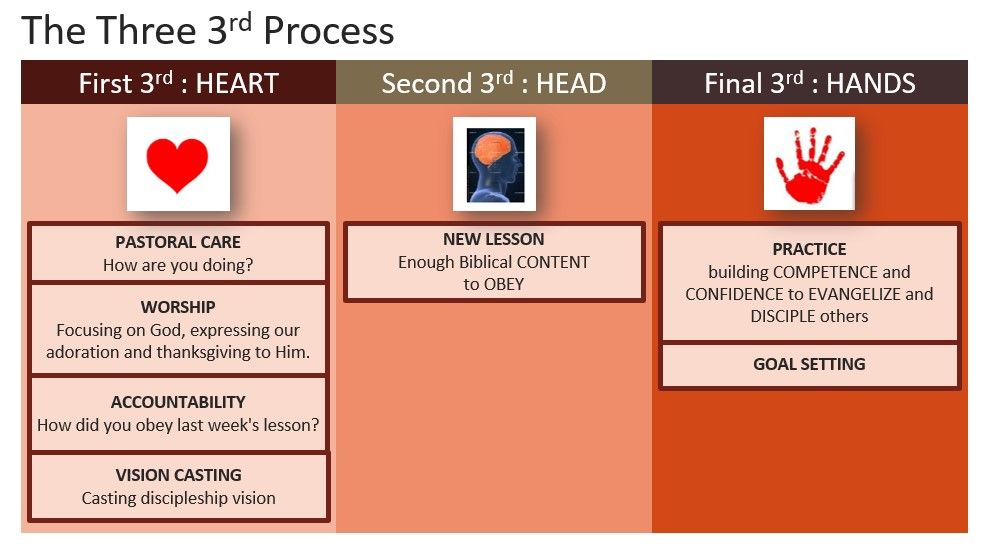Having a Multiplication Mindset
Is it more important for missionaries to win souls or to equip soul winners?
Is it more important to make disciples or to make disciple makers?
One is addition and one is multiplication.
When Jesus saved and chose the disciples, He wasn’t just thinking of their salvation and new life. He was planning on equipping them to do what He did - fish for souls and make disciples. Jesus said, “Follow me and I will make you fishers of men.” I will demonstrate it. You follow me and watch how I do it. I’ll equip you, and then you will be able to do the same thing as I am doing with you.
When Jesus chose his disciples, he was not just thinking of his disciples. He was thinking of the many generations to come after them and through them. In John 17:20, when Jesus had finished training the 12 and was preparing to leave the mission with them, Jesus prayed, “I pray not only for these but also for those who believe in me through them.”
Well, of course, we need both addition of disciples and multiplication of disciples. We need to know how to add people to faith in Christ in order to be able to equip others to do the same and multiply. And we need to know how to disciple and equip individual disciple-makers ourselves in order to multiply disciples and disciple-makers. Jesus himself added people to his group of disciples, but he didn’t just have an addition mindset. He had a multiplication mindset. He added them so that He could teach them to multiply.
Paul had the same mindset as Jesus. He told Timothy in 2 Timothy 2:2, “The things you have received and seen in me, commit to faithful men who will be able to teach others also.” Paul was looking through Timothy at 4 generations of disciple makers.
“Me” (Paul) --> “You” (Timothy) --> “Faithful Men” -->“Others also”
Which could look something like this diagram below.
When I started out in planting churches, I spent almost all my time trying to add new souls. Which is where it had to start. Once they accepted Christ, I spent all my time discipling those I had won. Those were great times in the ministry, and people were coming to Christ and their lives were changing. But I became restless because I wanted to be winning more to Christ and discipling them, but I didn’t have the time, and the evangelism really slowed down or at times stopped, because I needed to care for the believers. Something needed to change.
With time I realized that part of my problem was that I had an addition mindset, and what I needed was a multiplication mindset. The whole process depended on me doing it. My end product was a maturing disciple, and then I needed to start over again with others. But my end product should not have been a maturing disciple. I needed to develop maturing, multiplying disciples. I needed to continue to disciple them into being part of the disciplemaking team, and then teach them to do the same with their new disciples.
That meant that my discipleship plan needed to include doing and demonstrating a simple way …
o to connect with the lost,
o win them to Christ,
o instill in them the basic habits and truths of walking with Christ,
o gather them into healthy groups
o and a simple process for them to do it all with someone else so that they could pass it all on to others.
If I could lead each new disciple to win, disciple and equip another person, then evangelism and discipleship could both continue on simultaneously and endlessly. It needed to be continuing to happen without me being the one to do it. I needed to see my primary role as an equipper of disciple-makers.
Here is a chart showing the comparison between an addition approach to planting a church and a multiplication approach.
- It works like this…
We see that we need to go slow in order to go fast.
Take the time to build it into each disciple to pass on what they received, and take the time to develop easily reproducible methods and systems that will facilitate all new believers being developed into disciples who make disciples who make disciples.
Of course, real life ministry doesn’t happen exactly like this. It isn’t an exact science like mathematics. There are many external factors that influence the growth and the spread of the gospel such as what kind of soil we are planting in, the responsiveness of the people, the gifting and calling of the founders, the working of the Holy Spirit, and so on. But that is true with every kind of ministry. But the fact is that
Multiplication will outpace addition.
In future blogs we will look at ways to build multiplication into our ministry plans.
GO SLOWER IN ORDER TO GO FASTER
FOR THOUGHT:
- Is your ministry primarily from an addition mindset or a multiplication mindset?
- Do you see each new believer as a connection to their life network?
- Do you have an intentional strategy to help them grow into Maturing, Ministering, Multiplying followers of Christ?














